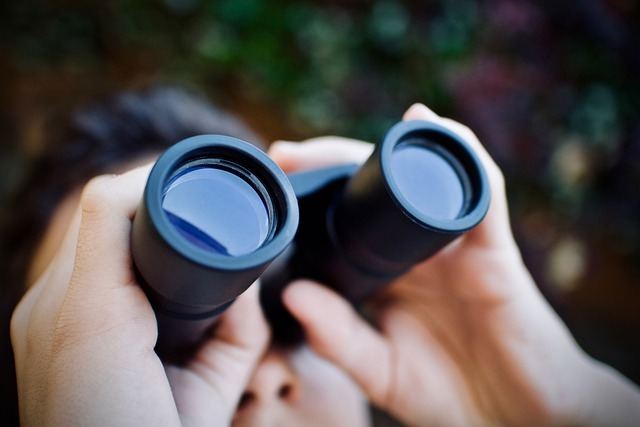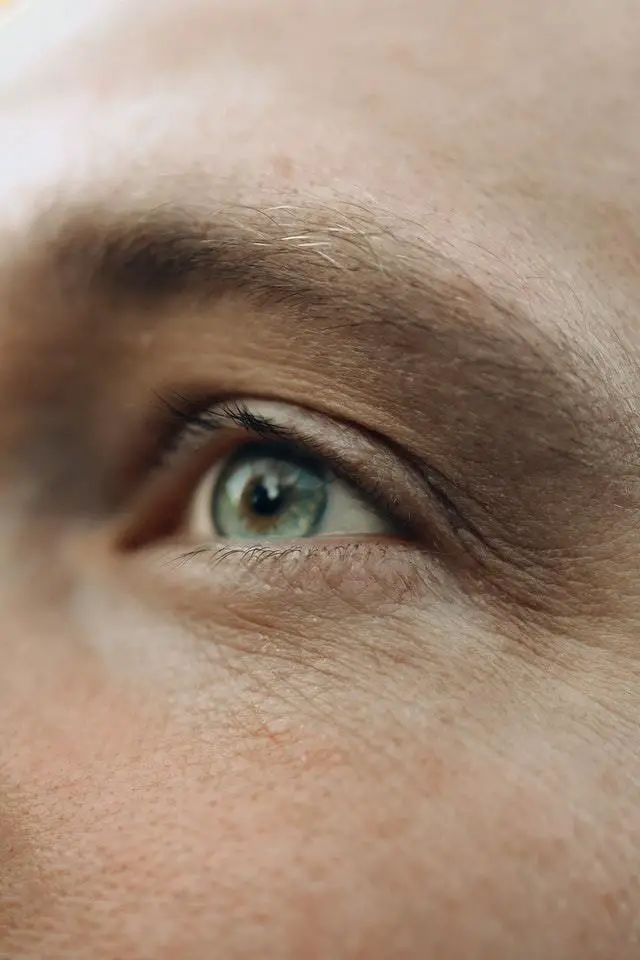Can Binoculars Damage Your Eyes? (Know The Truth Here!)

The eyes are the most precious organ in the human body. In terms of impact, what we do is mostly decided on what we see through our eyes.
As such we need to be careful with our eyes, and ensure that we don’t do anything that puts strain on our eyes or damages them.
The use of optical devices like binoculars for long hours at a stretch may put a strain on the eyes or at least a headache.
How Use of Binoculars Affects Your Eyesight?
However, binoculars can damage your eyesight, if you use a faulty piece. It may happen that a binocular falls off a tripod or from your hand, this may disturb the alignment of one or both lenses.
If you continue to use the faulty or out-of-alignment binocular without resetting the lens alignment, then it will severely affect your eyesight, as you start seeing the double images.
This type of thing generally happens with Porro prism binocular, so one must be very careful while using such types of binoculars. So, it all depends on the use of binoculars with perfect alignment of the lens.

Don’t Confuse with Binocular Vision Dysfunction (BVD)
Sometimes people tend to think that Binocular Vision Dysfunction or BVD is caused by binoculars, which is way off the truth.
Truth is Binocular Vision Dysfunction (BVD) is a condition of the eyes, where the line of sight of one eye tends to be slightly out of alignment from that of the other eye.
A problem that affects the eye since childbirth, has got nothing to do with binoculars. BVD puts a heavy strain on the eyes since the eye muscles are constantly trying to correct the alignment.
A person suffering from BVD condition may suffer from a variety of symptoms such as dizziness, motion sickness, headache, light sensitivity, and anxiety.
The best way to fix the problem of BVD is to wear a spectacle. This can help improve the alignment of the eye fairly quickly. Spectacles can have a refractive prescription or a prism to help eliminate symptoms of BVD.
Sometimes reading glasses are commonly prescribed by doctors to help patients suffering from BVD to mitigate the problems. LASIK surgery can also help alleviate the BVD problem.
Correct Use of Binoculars
Adjusting the eyecups helps give the eyes relief. Based on how the eyes are placed, some people may need to adjust the eyes more for a more comfortable view.
This also helps improve your view from binoculars. In general, depending on comfort level, one should adjust the cups as required.
People wearing glasses should have eyecups lay flat, whereas people not wearing glasses should have eyecups out. Thus, the use of binoculars depends on how well you can focus the device.
The use of binoculars on many things, principally how well you hold the binocular, or how well you adjust the binocular diopter.
Binocular diopter can be adjusted as per the choice of the individual user to neutral, in many ways if it is affecting the eyes.
The binoculars can hurt the eye, if not used properly. Some of the easiest tips to use binoculars to avoid hurting eyes are as follows: –
1. Use The Lowest Possible Magnification. :-
The lowest possible magnification of the binoculars not only magnifies the image but also cuts the shakiness of the hands s. The higher the binocular magnification, the more your hands will shake.
2. Use Binocular With the Correct Objective Lens. :-
The binocular lens should be kept furthest from the eyes. The bigger the image, the more light it gathers. For example, using binoculars in low light situations the lens should be as large as possible.
3. Adjust the Binoculars’ Center Hinge.
The two barrels of binoculars are connected together with a center hinge. Adjusting it is necessary for the binoculars to get a clear image.
4. Adjust the Eyecups
The eyecups help position your eyes at the correct distance from the ocular lens This allows you to see an image without any black shading around the edge of the image. Users can Increase or decrease cup depth till the edge is crisp.
5. Set the Diopter.
No 2 eyes work the same and this difference between two eyes needs to be taken into account while using a binocular. In a binocular one eyepiece has a diopter adjustment which can help cover this difference. The diopter can be adjusted by doing the following: –
- Cover the lens (usually the right one) affected by the diopter adjustment using a lens cover cap.
- Use central control knob, to rotate the central focus wheel, until the binocular focus is sharp enough.
- Remove the lens cover cap and cover the other lens (left one).
- Rotate the diopter adjustment until the image is sharp enough in the right eye.
- Remove lens cover cap, after lens adjustment is done
6. Use Your Naked Eye First
A binocular helps amplify what the naked eyes can see. It can be difficult to train the naked eyes to see a small target at a distance. This can frustrate you, but try to see with naked eyes for a wider-angle view of an area as much as possible and once the eyesight is adjusted, see the remaining through binoculars for a more restricted field of view for pinpoint accuracy.
7. Don’t Use Cloth to Clean Binoculars
One should never use a shirt! Cloth to clean the binoculars. Unlike the eyeglass, the fabric can damage the delicate glass of binoculars leaving behind scratches. The scratches blur your binocular vision severely. Use only a soft brush or compressed air, or lens tissue to clean the binocular.
More: How To Fix Double Vision In Binoculars
What Do Numbers on A Binoculars Mean
Conclusion
Using the right kind of binoculars to view the distant images clearly is essential, as a wrong binocular or a binocular with the wrong lens may affect the eyesight severely.
Also keeping the binocular spotless clean at regular intervals ensures it doesn’t strain the eyes.
While there are several ways to ensure that the binoculars perform the best, a few general tips can go a long way to ensure a binocular’s effectiveness.
It all depends on how well the user is able to follow them and gain maximum benefit out of binoculars.
